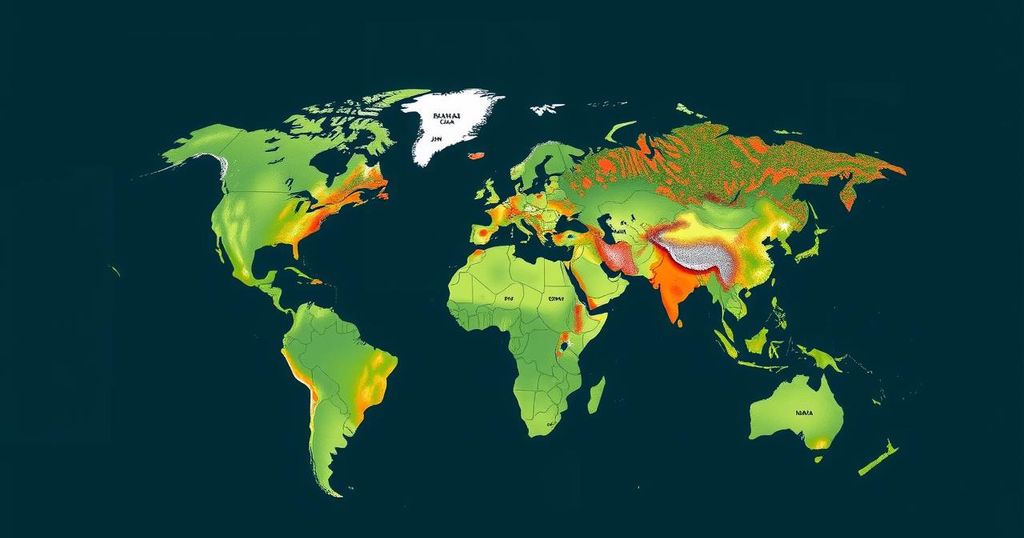On December 5, 2024, the International Court of Justice held hearings on climate change obligations, emphasizing that developing nations should not disproportionately bear the consequences of historical emissions caused by industrialized countries. Key arguments from nations including the Solomon Islands, India, and Iran called for legal recognition of climate justice, comprehensive support for vulnerable states, and adherence to international commitments. The discourse highlighted the need for equity and cooperation in addressing the global climate crisis.
On December 5, 2024, the International Court of Justice (ICJ) in The Hague continued its hearings on the obligations of UN member states regarding climate change and environmental protection. Representatives from developing nations including the Solomon Islands, India, and Iran argued that the consequences of climate change, driven mainly by historical emissions from industrialized countries, should not disproportionately burden developing nations, which have contributed minimally to global emissions. The Solomon Islands emphasized the need for industrialized nations to take moral and legal responsibility, highlighting threats such as rising sea levels and cultural displacement.
India underscored the inequity faced by developing countries in emission limits compared to their contributions, invoking the principle of Common but Differentiated Responsibilities and Respective Capabilities (CBDRRC). Furthermore, both India and the Solomon Islands called for robust legal frameworks and financial support from developed nations, insisting that climate finance should be regarded not as charity but as an obligation outlined in international law. Iran supported this stance, criticizing unilateral measures that hinder cooperation and emphasizing that developed countries must lead in climate action while sharing resources and technology with developing nations.
This ongoing discourse illustrates the urgent need for a collective global response to climate change, founded upon principles of equity and shared responsibility, as small island developing states and other vulnerable nations seek justice and support in confronting climate impacts.
The ongoing hearings at the International Court of Justice are significant as they address the responsibilities of countries contributing to climate change versus those who are suffering its effects. The discussions have brought attention to the disparities in emissions between developed and developing nations, highlighting how the historical actions of industrialized countries have exacerbated the climate crisis. This dialogue is crucial as it seeks to clarify legal obligations under international frameworks and to hold developed nations accountable for their roles in climate change while advocating for equitable support for those most affected.
The hearings at the ICJ reflect a critical moment in global climate governance, emphasizing the imperative for developed nations to acknowledge their historical responsibilities and provide adequate support to developing nations. The arguments presented assert that climate finance is a legal commitment rather than an act of charity, reinforcing the necessity for cooperative efforts rooted in equity and shared responsibilities. This ongoing legal discourse may shape future climate policies and frameworks aimed at achieving global justice and sustainability in the fight against climate change.
Original Source: www.ipsnews.net






